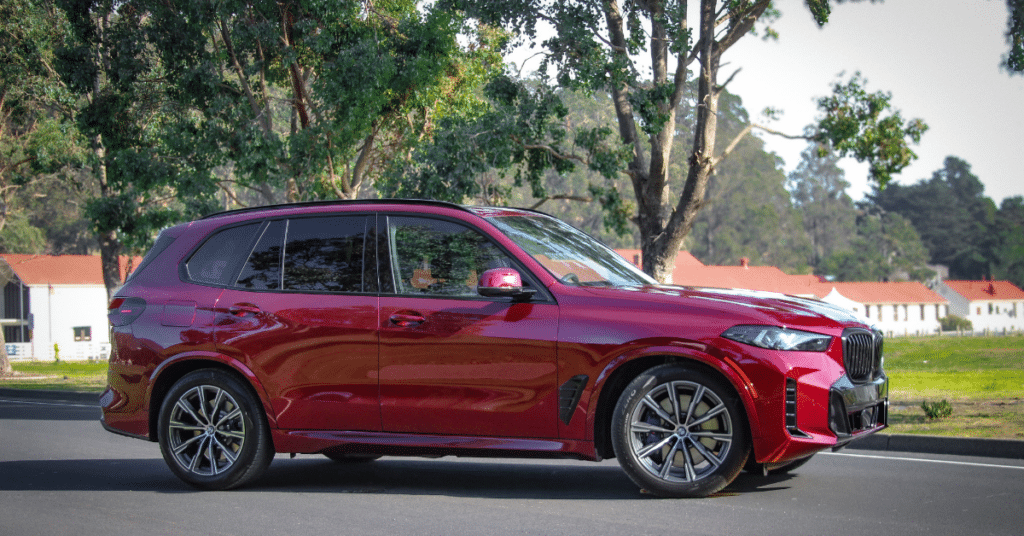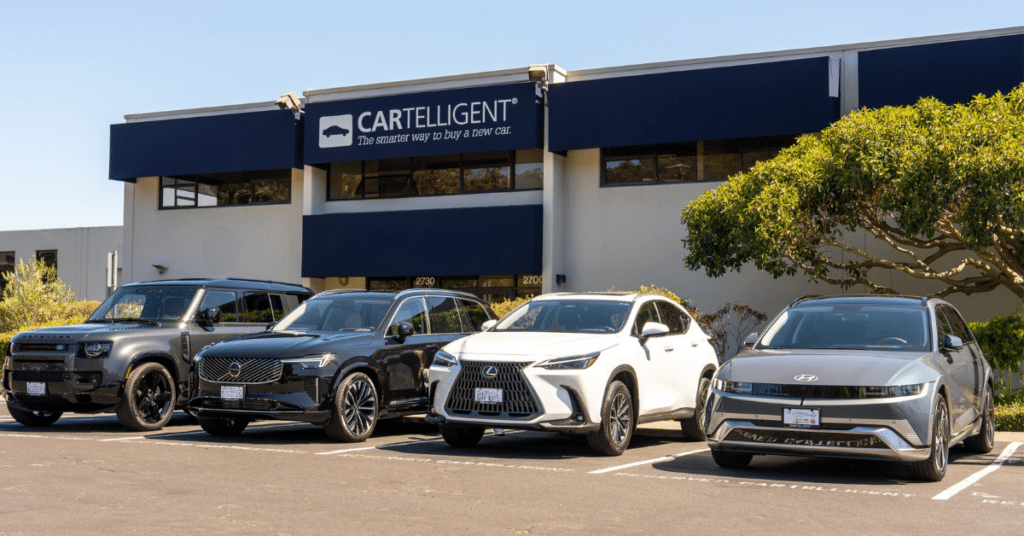What is an Auto Broker & How Can They Help You?

Navigating the car buying process can feel overwhelming, but an auto broker simplifies it. Acting as an intermediary between buyers and dealerships, auto brokers manage everything from vehicle searches to negotiating prices, ensuring you get a great deal while saving time and avoiding costly mistakes. Their expertise helps avoid common dealership pitfalls like hidden fees or inflated insurance rates.
This article explores how auto brokers work, how they differ from car dealers, and how they can make your next vehicle purchase easier.
Section 1: What is an Auto Broker?
Understanding the Role of an Auto Broker
Definition of an Auto Broker
An auto broker, or car broker, is a professional who helps buyers purchase vehicles by acting as a buyer and auto dealer liaison. Unlike car dealers, who sell from their inventory, auto brokers work independently to find the car that matches the buyer’s preferences.
Car brokers specialize in locating specific makes and models based on the buyer’s needs, including budget and features.
How Auto Brokers Operate
Auto brokers leverage their network of auto dealers to offer various vehicle options. They negotiate prices, trade-in values, and financing terms to secure a great deal.
In addition, auto brokers manage paperwork, ensuring a smooth process and providing car buyers with more flexibility and savings than working with a single dealership.
Section 2: How Auto Brokers Differ from Car Dealers
Comparing Auto Brokers and Car Dealers
Key Differences
Auto brokers and dealers facilitate the car-buying process, but their roles and incentives differ. Auto brokers work for the buyer, sourcing vehicles from multiple dealerships to match the buyer’s exact preferences. They do not own the cars they help clients purchase.
Car dealers, by contrast, sell vehicles from their inventory and focus on selling their existing stock.
While auto brokers prioritize the buyer’s needs, dealers aim to sell the cars they have on hand, which may limit the buyer’s options.
Auto Broker Fees vs. Car Dealer Profits
Auto brokers typically charge a flat fee or commission for their services, separate from the vehicle’s purchase price. Car dealers, however, profit from vehicle sales and may mark up prices to cover overhead costs like sales staff and dealership operations.
Auto brokers offer more transparent pricing, while car dealers may include additional fees, such as warranties or dealership costs, which can increase the overall price.
Who Benefits from Using Each?
The choice between an auto broker or a car dealer depends on the buyer’s preferences. Auto brokers are ideal for buyers looking for personalized service, access to a broader range of vehicles, and support throughout the process.
On the other hand, car dealers are better suited for those who want to see and test-drive cars in person and prefer a quicker purchase process. Buyers prioritizing variety and favorable terms generally benefit more from working with auto brokers. At the same time, those looking for a direct purchase might find working with a dealer more convenient.
Section 3: Services Provided by Auto Brokers
What Can Auto Brokers Do for You?
Negotiation and Paperwork
One significant advantage of working with an auto broker is that they handle all the price negotiations and paperwork on your behalf. This convenience simplifies car buying, making it much less stressful for buyers. Auto brokers know dealerships’ tactics, ensuring you avoid pitfalls and secure the best deal.
Access to Dealer Networks
Auto brokers have access to a vast network of auto dealers, so they can present you with more vehicle options than you’d find at a local auto dealership. This access includes new and used cars and specialized options that may not be available on dealership lots.
Extra Services
Beyond finding the right vehicle, auto brokers provide additional services like assisting with trade-in services, securing manufacturer rebates, and helping you get extended warranties. These services often result in better car deals than you’d be able to negotiate.
Section 4: Auto Broker Fees and Commissions
Understanding Auto Broker Costs
Types of Fees
Auto brokers generally charge one of several types of fees: a flat fee, an hourly rate, or a commission based on the vehicle’s value. Some auto brokers may also require a retainer upfront, ensuring you’re serious about using their car-buying services.
- Flat fees are straightforward and transparent, allowing you to understand precisely what you’re paying.
- The broker typically bases their commission on how much they save you on the vehicle’s price.
Is It Worth the Cost?
For most buyers, the savings negotiated by an auto broker often outweigh their fees. Brokers have industry knowledge and leverage that allow them to secure discounts on new car pricing or used car pricing. So, while you may pay a fee upfront, you’ll likely save much more through the better deal they negotiate.
Section 5: Benefits of Working with an Auto Broker
Why Choose an Auto Broker?
Save Time and Effort
Auto brokers handle the entire car buying process, including negotiating and comparing vehicles across car dealerships. This service saves you time and takes care of paperwork, allowing you to focus on other priorities.
Access to Better Deals
Auto brokers have established relationships with local dealers, auto dealers, or even a bank car-buying service, giving them access to deals most individual buyers can’t find. They often secure better prices and terms than buyers can negotiate.
Personalized Service
With an auto broker, you receive personalized service. They work with your specific requirements, finding the right car within your budget and preferences, making the buying process far more efficient.
Avoiding Common Mistakes
Auto brokers are experts at avoiding common dealership tricks like hidden fees or increased insurance rates. They ensure you avoid costly errors and deal directly with dealership managers to get you the best deal.
Section 6: Choosing the Right Auto Broker
How to Find a Reliable Auto Broker
When selecting an auto broker, consider experience and licensing. Former car dealers often make great auto brokers due to their knowledge of auto dealers. Always ensure they are licensed auto brokers, and check if they hold an auto broker endorsement, where required.
Research and Reviews
Look up reviews, ask for references, and check the broker’s background. This diligence will help ensure you work with a reliable broker who can provide trustworthy car brokering services.
Red Flags to Avoid
Avoid brokers tied to specific car dealerships or those charging unusually low fees. They may not have your best interests in mind and could compromise the quality of your deal.
Section 7: The Auto Broker Process
Step-by-Step Guide to How Brokers Work
Understanding the auto broker process can help you know what to expect.
Initial Consultation
The buyer provides the broker with vehicle specifications, such as make, model, budget, and any specific car features they need. Whether you’re seeking new car buying services or assistance with a used vehicle, the broker uses this information to start the search.
Vehicle Search
Auto brokers search locally and nationally to find the right car. They tap into their network of auto dealers, bank car-buying services, and other resources to locate new and used vehicles that meet the buyer’s needs.
Negotiation and Paperwork
Once the broker finds potential vehicles, they negotiate the price and handle all the necessary paperwork, including any interactions with the finance and insurance offices. These steps ensure a hassle-free car-buying process.
Finalizing the Deal
The broker finalizes the purchase after the buyer inspects and test-drives the vehicle. The broker handles all the paperwork, including trade-in services, financing options, and any warranties, making the experience as smooth as possible.
Section 8: Are Auto Brokers Worth It?
Evaluating the Value of an Auto Broker
Auto brokers can often save buyers time, money, and stress.
Time and Money Savings
Brokers often save buyers thousands of dollars by negotiating better prices, thanks to their knowledge of car pricing and connections with car dealerships. Additionally, auto brokers handle all the paperwork, including interactions with the finance and insurance office, so you don’t have to.
Expert Negotiation Skills
Auto brokers are experts at working with auto dealers and can often secure better prices and terms than buyers would get on their own. They ensure you avoid hidden fees, including those related to the finance office or hiking insurance rates.
Personalized Experience
From start to finish, brokers ensure the car buying process is tailored to the buyer’s preferences, whether they’re looking for new cars or used car brokering services.
Section 9: Finding an Auto Broker Near You
Locating a Local Auto Broker
To find a reliable auto broker, search online for terms like “auto broker near me” or “auto broker near me in Los Angeles.”
We proudly serve major California locations, including San Francisco & Marin County, Silicon Valley, San Francisco East Bay, and Southern California, such as Los Angeles and San Diego. Choose a location near you, and let us handle the rest!
What to Consider
Ensure the auto broker is licensed, has a strong reputation, and specializes in the specific vehicles you seek. Whether seeking new car brokering services or assistance with a used vehicle, choosing a knowledgeable broker is key to a successful car buying process.
Why Cartelligent is the Right Choice
Cartelligent makes car buying simple and stress-free. We handle everything for you—from finding the perfect vehicle to negotiating with car dealerships and handling all the paperwork. With our expertise, you’ll save time, avoid dealership hassles, and get the best deal possible.
Let Cartelligent take the lead, and you’ll drive home in your ideal car in no time! Start your journey with us today.




